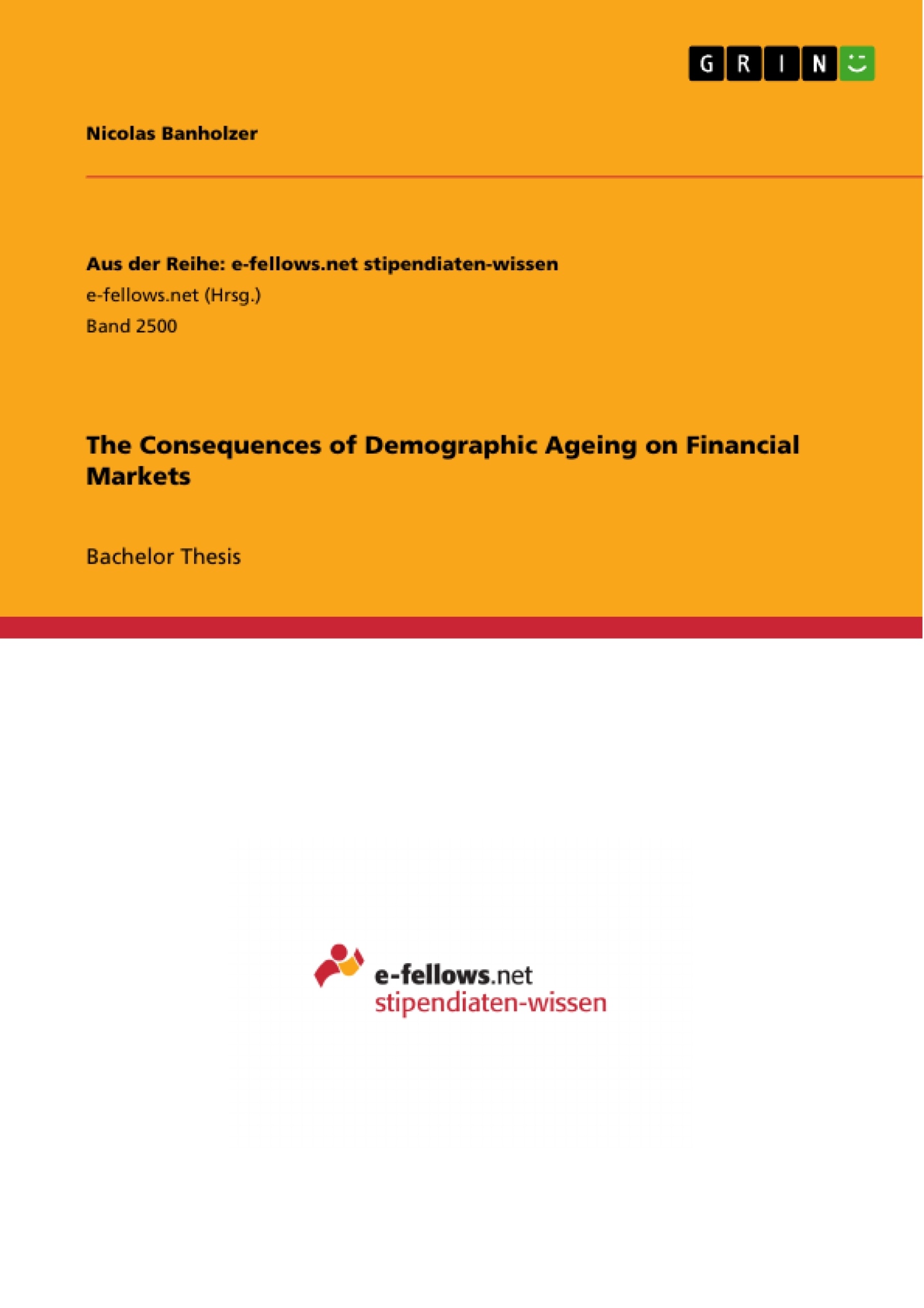Most developed countries will be going through a strong demographic transition over the coming decades. The large Baby Boomer cohort is approaching retirement and whereas it is often believed that they brought an economic dividend when they were working, it is assumed they will prove to be a drain on economic growth as they retire. Equally, financial markets are worried that the Baby Boomers will put the financial assets they accumulated over their life-cycle simultaneously on the market, thereby causing asset prices to tumble.
However, looking at data about the life-cycle saving behaviour of households casts doubts that there is strong asset deccumulation even in the very old age. This work contributes on this issue by providing empirical evidence on individual stock market participation over the life-cycle in Germany between 2000 and 2011. The results give only weak support for strong asset deccumulation during retirement. In combination with the institutional design of the German pension system and other findings, demographic ageing is unlikely to lead to an asset price meltdown.
Inhaltsverzeichnis (Table of Contents)
- Introduction
- Demographic Transition in Germany and other Nations
- The Life-Cycle Saving Model
- Demography and Asset Prices
- Empirical Analysis
- Model Variables and Expectations
- Probit Estimation for 2004
- Probit Results over Time
- Discussion
- Discussion of the Empirical Results
- Implications of the Empirical Results for Asset Prices
Zielsetzung und Themenschwerpunkte (Objectives and Key Themes)
This work aims to provide empirical evidence on the impact of demographic ageing on individual stock market participation in Germany, with a specific focus on whether the life-cycle saving model accurately predicts asset deccumulation during retirement. The study uses data from the German Socio-Economic Panel (SOEP) and analyzes stock ownership patterns between 2000 and 2011 using a Probit model. The findings challenge the asset price meltdown hypothesis, suggesting that demographic ageing may not necessarily lead to a dramatic decline in asset prices.
- Demographic ageing and its impact on financial markets
- The life-cycle saving model and its relevance to asset accumulation and deccumulation
- The asset price meltdown hypothesis and its implications for retirement provisions
- Empirical analysis of individual stock market participation in Germany
- The role of institutional design, such as the German pension system, in shaping asset holdings
Zusammenfassung der Kapitel (Chapter Summaries)
- Introduction: The chapter introduces the research question, outlining the concerns surrounding the potential impact of demographic ageing on economic growth and financial markets. It highlights the conflicting perspectives on asset deccumulation during retirement, with some arguing for an asset price meltdown while others believe that demographic ageing may not significantly affect asset prices. The study's contribution is to provide empirical evidence on individual stock market participation in Germany to shed light on this debate.
- Demographic Transition in Germany and other Nations: This chapter explores the magnitude of demographic ageing in Germany and other countries. It presents data on the elderly dependency ratio, illustrating the significant increase in the elderly population relative to the working-age population, particularly in Germany. The chapter also discusses the reliability of population projections, acknowledging potential uncertainties but emphasizing the relative reliability of forecasts for large and developed countries like Germany.
- The Life-Cycle Saving Model: This chapter examines the theoretical underpinnings of the life-cycle saving model, which posits that individuals save during their working years and then draw down their accumulated wealth during retirement. The chapter discusses the limitations of the model, noting that other saving motives besides retirement provision can influence saving behavior and potentially lead to deviations from the predicted hump-shaped life-cycle pattern. The chapter explores the specific context of the German case, highlighting the German Saving Puzzle and its potential explanations.
Schlüsselwörter (Keywords)
The main keywords and focus topics of this work include demographic ageing, asset price meltdown hypothesis, life-cycle saving model, individual stock market participation, Probit estimation, German Socio-Economic Panel (SOEP), asset deccumulation, retirement provisions, German pension system, and empirical analysis.
- Citation du texte
- Nicolas Banholzer (Auteur), 2012, The Consequences of Demographic Ageing on Financial Markets, Munich, GRIN Verlag, https://www.grin.com/document/372039




